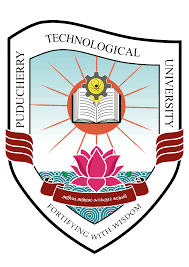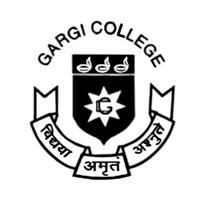Master of Science - (M.Sc.)
Universities
30
Eligibility
Bachelor's degree
Course Introduction
Master of Science
The Master of Science, often abbreviated as M.Sc., is a postgraduate degree program that offers students the opportunity to delve deeper into a specific field of study. It is an advanced level of education beyond a bachelor's degree and is usually completed in 1 to 2 years. M.Sc. courses are available in a wide range of subjects, including sciences, social sciences, engineering, and more. These programs provide students with a chance to enhance their knowledge, research skills, and expertise in their chosen field. Throughout the course, students may engage in classroom learning, research projects, and sometimes internships or practical experiences. An M.Sc. degree can open up doors to various career opportunities, including research positions, teaching roles, or higher-level positions in industries. It is a valuable step for those who wish to specialize in their area of interest and contribute to the advancement of knowledge in their chosen field.
Course Overview
An M.Sc. (Master of Science) program typically provides a comprehensive and in-depth study of a specific subject. It's a postgraduate degree that usually takes 1 to 2 years to complete. During the course, students dive deep into their chosen field, learning advanced concepts, theories, and practical skills. They often attend lectures, engage in research projects, and sometimes gain hands-on experience through internships or lab work. M.Sc. programs emphasize critical thinking, problem-solving, and independent research, helping students develop expertise in their area of interest. Whether you're studying physics, biology, computer science, or any other field, M.Sc. programs aim to prepare you for careers in research, academia, or specialized roles within industries. It's a rewarding journey for those passionate about their subjects, offering a chance to contribute to the growth of knowledge and make a meaningful impact in their chosen field.
Course Eligibility
To enroll in an M.Sc. (Master of Science) course, you typically need a relevant bachelor's degree in a related field. Admission requirements may vary by university and program, but a strong academic background, relevant prerequisites, and sometimes standardized test scores like the GRE or GMAT may be necessary for consideration.
Universities
Admission Process
There is an online admissions process available at Online Master of Science, therefore there is no need to physically visit the campus to apply for admission. There is no entrance exam required to apply for admission to Master of Science Online because admissions are made directly. The following describes the Master of Science's admissions process for online courses:
Ask Admission QueryBrowse our diverse range of programs like MBA, BBA, MA, B.COM, Machine Learning, Python and many more...
Fill online application form with accurate.
You get your own education mentor who helps with all your questions about courses, university, colleges and fees. They're there to make things clear and easy for you.
Make your college application faster by sending your documents and paying the registeration fees.
Upon acceptance, pay fees to secure your seat and finalize enrollment
Confirm your class date, seat, enrollment number and get your gift as reward points
Course Subjects
- #Natural Sciences
- #Life Sciences
- #Computer Science and Information Technology
- #Engineering
- #Social Sciences
- #Health Sciences
- #Business and Management
- #Environmental Sciences
- #Agricultural Sciences
- #Education
- #Arts and Humanities
- #Applied Sciences
Master of Science's Highlights
1
Specialized Knowledge
M.Sc. programs offer in-depth and specialized knowledge in a specific field or subject area, allowing students to become experts in their chosen discipline.
2
Research Opportunities
These programs often include research components where students can engage in original research projects, contributing to the advancement of knowledge in their field.
3
Advanced Skills
M.Sc. courses help students develop advanced analytical, problem-solving, and critical thinking skills that are highly valuable in various careers.
4
Flexibility
Many M.Sc. programs offer flexibility in terms of course selection, allowing students to tailor their curriculum to their interests and career goals.
5
Career Advancement
Completing an M.Sc. can open up doors to higher-paying and more specialized job opportunities, especially in research, academia, and industries requiring technical expertise.
Master of Science's Freights
The cost of an MSc course in Data Science varies between colleges, with fees typically ranging from INR 1.7 lakh to INR 3.5 lakh per annum. Please note that these figures are approximate, and tuition fees can differ based on the university, location, and specific program offerings.
Master of Science's Specialization
M.Sc. programs offer diverse specializations, including Data Science, Environmental Management, Biotechnology, Artificial Intelligence, Clinical Psychology, Mechanical Engineering, and International Relations. These specialized fields allow students to deepen their expertise in a specific subject area and pursue careers aligned with their interests and career goals.
- #Data Science and Analytics
- #Environmental Science
- #Biotechnology
- #Artificial Intelligence and Machine Learning
- #Finance
Course Job
- #Research Scientist
- #Data Analyst/Data Scientist
- #Environmental Consultant
- #Biotechnologist
- #Software Developer/Engineer
- #Financial Analyst
- #Clinical Research Associate
- #Educator/Teacher
Course Types
Offline mode
Offline Master of Science courses typically offer full-time, on-campus programs. Students attend classes in physical classrooms, engage in laboratory work, and interact directly with professors and peers. These traditional programs provide hands-on learning experiences and face-to-face interactions, fostering a comprehensive understanding of Research Scientist.
Why this Course ?
- An M.Sc. course offers in-depth knowledge, advanced skills, and specialized expertise in a chosen field. It enhances career prospects, opens doors to research opportunities, and fosters critical thinking. Whether for personal growth or career advancement, pursuing an M.Sc. can provide a valuable edge in today's competitive job market.
- Specialization and Expertise: M.Sc. programs offer the opportunity to specialize in a specific field, allowing students to gain in-depth knowledge and expertise in their chosen subject. This specialization can open doors to more specialized and rewarding career opportunities.
- Research and Innovation: Many M.Sc. programs emphasize research, enabling students to engage in original research projects. This fosters critical thinking, problem-solving skills, and the ability to contribute to the advancement of knowledge in their field.
- Career Advancement: An M.Sc. degree often leads to better career prospects and higher earning potential. It can qualify individuals for more senior and specialized roles in their industry, making them more competitive in the job market.
- Passion and Interest: Many students pursue M.Sc. programs because of a genuine passion for their subject. The opportunity to study something they are deeply interested in can be highly fulfilling and motivating.
- Preparation for Advanced Degrees: For those considering a Ph.D. or further academic pursuits, an M.Sc. can serve as a stepping stone. It provides the research experience and academic background needed for doctoral studies.
Frequently Asked Questions
A 1 : An M.Sc. (Master of Science) program is a postgraduate academic degree focused on advanced study and research in a specific field or discipline, providing specialized knowledge, research skills, and expertise to graduates.
A 2 : Career prospects for M.Sc. graduates vary by specialization but often include roles as researchers, data analysts, scientists, educators, managers, and consultants in fields such as science, technology, healthcare, and academia, among others.
A 3 : An M.Sc. program can help you develop advanced analytical, research, critical thinking, problem-solving, and specialized technical skills. It also fosters effective communication, teamwork, and adaptability, preparing you for a wide range of career opportunities.
A 4 : The duration of an M.Sc. (Master of Science) program typically ranges from 1 to 2 years, depending on the country, university, and specific program requirements.
A 5 : The ability to transfer credits from a community college to an M.Sc. program varies by the university and program. Some institutions may accept transfer credits for relevant coursework, but it's subject to their specific policies and evaluation.






















